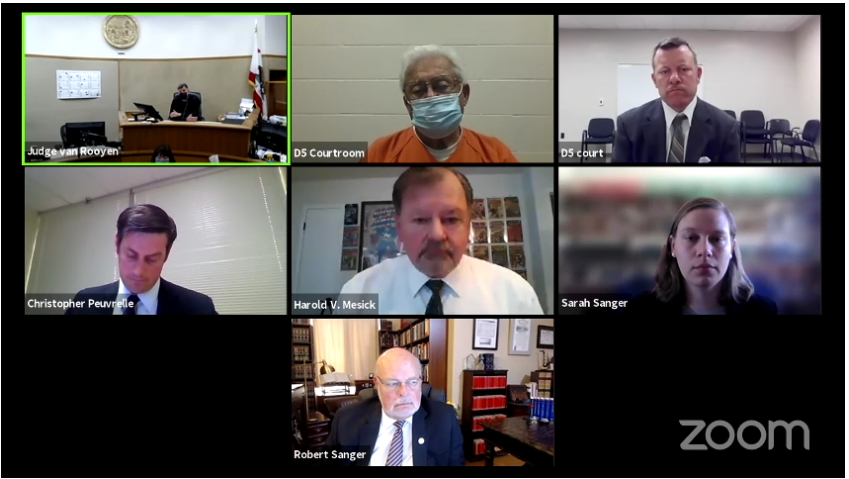Judge denies bail for Paul Flores, notes evidence of other sexual offenses
April 19, 2021

By KAREN VELIE
San Luis Obispo County Superior Court Judge Craig van Rooyen ruled Monday that Paul Flores is to remain in jail without bail because of fact evidence supporting the murder charge and issues with public safety.
Paul Flores is accused of murdering Cal Poly freshman Kristin Smart during an attempted rape in 1996. If convicted, Flores faces 20 years to life in prison.
Deputy District Attorney Christopher Puerelle asked the judge to hold Paul Flores in jail without bail.

Paul Flores
Paul Flores’ attorney Robert Sanger argued his client had never left the state even though he knew he might be arrested. Sanger also said that some of the evidence of past sexual offenses made no sense.
“He must not have read the same reports,” Puerelle responded. “Searches provided significant evidence.”
After voicing concerns for the safety of others based on the evidence of other sexual offenses, Judge van Rooyen determined Paul Flores would remain detained in the SLO County Jail.
Paul Flores’ 80-year-old father Ruben Flores, who is suspected of helping to cover up the murder of Kristin Smart, is charged as an accessory after the fact. If found guilty, he faces up to three years in jail.
On March 15 and 16, deputies utilized cadaver dogs and ground penetrating radar during a search of Rubin Flores’ home and yard on White Court in Arroyo Grande. During the search, investigators dug in multiple places and collected evidence.
While the prosecution asked the court to hold Rubin Flores without bail, his attorney Harold Mesick argued his client’s 40 years of ties to the community, including belonging to the Elks Club and volunteering at the Clark Center, demonstrated he was not a flight risk. In addition, Mesick noted his client’s many health concerns, and questioned whether staying in jail would lead to his “unnatural death.”
“He is not a flight risk,” Mesick said. “I do not believe there are any grounds for holding Mr. Flores in custody.”
Mesick also argued that soil discovered disturbed in Rubin Flores’ yard wasn’t conclusive evidence, for the first time publicly noting issues with disturbed soil.
Prosecutor Puerelle voiced his concerns that if let out on bail, Rubin Flores would continue to help his son cover up a murder.

Rubin Flores
“He engaged in accessory after the fact from 1996 through 2021,” Puerelle said. “He has assisted in the coverup for 25 years, and he will keep interfering.”
“We do not punish people before they are convicted,” Judge van Rooyen said. “He could serve out the maximum sentence before testing the evidence.”
Under the conditions Rubin Flores wear electronic monitoring and report to the sheriff, the judge said he will set a bail Rubin Flores can afford.
In order to allow Rubin Flores and his attorney to discuss a doable bail amount, the judge asked them to return to court on April 21.
Both Paul and Rubin Flores pled not guilty to all charges.






The comments below represent the opinion of the writer and do not represent the views or policies of CalCoastNews.com. Please address the Policies, events and arguments, not the person. Constructive debate is good; mockery, taunting, and name calling is not. Comment Guidelines